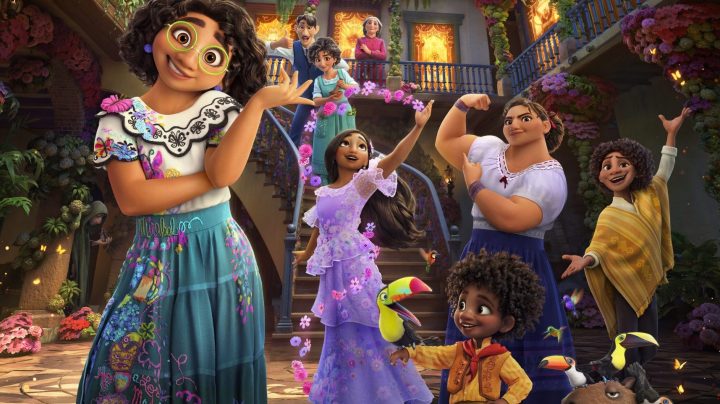Op-Ed: We Can Enjoy ‘Encanto’ While Calling Out the Ways It Faltered — Let’s Discuss

Courtesy of Disney
When Disney’s latest film Encanto was first announced in 2020, I was excited but skeptical about it. Being born and raised in Colombia, I’m well aware that my country hasn’t always been represented positively in the media. So, when Disney proposed their newest animated spectacle, I started to look forward to a change in the conversation when telling people where I’m from instead of people immediately connecting my country with something like Narcos.
Then I watched Encanto.
This film takes us on a journey within ourselves and into where we fit in our family. Filled with colorful, exciting, and joyful animation, incredibly compelling and flawed characters, a story that will have Latines everywhere crying because of our shared cultural trauma, and a soundtrack that livens up the story — Disney clearly understood the assignment. And what immediately caught my eye is just how diverse the film is. From representing every skin color to showcasing different body types, and unique personalities, Encanto has it all.
However, the more I looked into the film, the more something didn’t feel quite right. I found myself having trouble connecting to the Colombian experience the film is trying to portray. And that’s when I discovered something pivotal, the main team behind the film, weren’t Colombian. It might seem like such an insignificant detail to be hung up on since there’s already so much representation to be excited about when it comes to casting, but if we’re going to credit the film for being a much-needed step forward, we also have to call them out when they’re not.
I think that Disney fully understands where they stand in terms of representation. Their animation teams, cast, and the stories they tell show that. However, there’s still one hurdle that I feel needs to be overcome, and that is telling stories about us without us. By only having “cultural consultants” working on the film, and not having Colombian directors and writers to work directly with the material (according to IMDB), they created this disconnect between their film and the Colombian experience.
Encanto doesn’t feel like a Colombian film, at least to me it doesn’t, based on my experience and upbringing in Colombia. In turn, the Madrigals don’t feel like a Colombian family. And while I don’t need for that to be the case in order to enjoy the film, relate to the characters and their stories, I do feel like that part of the enjoyment of finally getting to celebrate my country and all its beauty was lost because of it.
I can only imagine how big the impact would’ve been and how the film would’ve felt more genuine if the team behind it were connected to the country, its people, and culture in the same way that Coco did when it came out in 2017. And I’ll take it as a reminder that representation matters, on-screen and behind the scenes.
At the end of the day, I’m still glad Encanto was made. For one, and like previously mentioned, my country was portrayed in a way other than Narcos. And secondly, I got to see my cousins meeting Mirabel at Disneyland and their excitement, their joy to be able to relate to and talk about where their family is from — that’s what makes it all worthwhile. But I also know that there is room for improvement. We can do better, and hopefully, Disney will too.